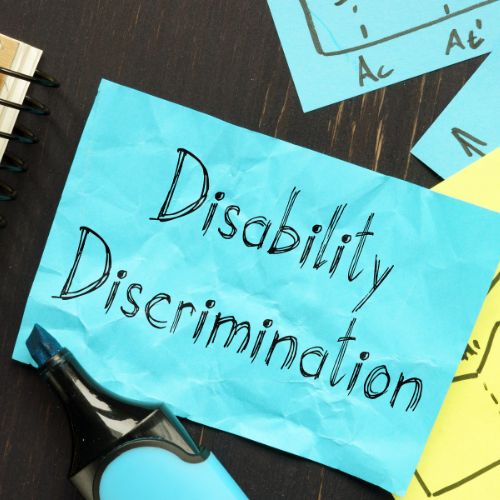The Court of Appeal has just given judgement in the case of Galo (Patrick) v Bombardier Aerospace UK 2016 NICA 25, holding that the Industrial Tribunal did not provide a fair hearing to a Claimant who suffered from Asperger’s Syndrome by failing to properly take account of his disability and his medical evidence in circumstances where he was a litigant in person.
Guidance for Tribunals dealing with Claimants suffering from mental impairments and disabilities
The Claimant in this case brought a Tribunal complaint alleging race discrimination, disability discrimination, victimisation, harassment on the grounds of his disability and nationality and unfair dismissal – he was unsuccessful in his claim before the tribunal and he appealed to the Court of Appeal on the grounds that a number of the acts of the Tribunal hearing his case, were unlawful, namely:
- Failure to make reasonable adjustments for his disability;
- Unreasonably failing to adjourn the case on a number of occasions;
- Placing unfair and oppressive demands on the Appellant in relation to the hearing;
- Striking out all claims expect for his unfair dismissal claim;
- Proceeding to hear his unfair dismissal claim in his absence and in the face of medical evidence supportive of an adjournment;
- Dismissing his unfair dismissal case.
- The Appellant had pro bono representation for the purposes of his appeal to the Court of Appeal.
In this case, the Respondent had conceded the appellant’s disability, but the NICA stated that no enquiry from the Tribunal was made as to the precise nature of the disability or any potential reasonable adjustments.
The Court of Appeal stated, “…this was, and should have been recognised as such from the outset, a case involving a person under a disability of mental health…as soon as it emerged enquires should have been made as to whether reasonable adjustments to the process were necessary…”
The Tribunal was criticised further in relation to the lack of attempt to invite doctors to attend the Industrial Tribunal Hearing, in order to outline specifically the Appellant’s condition or to obtain a report on his condition.
The NICA directed when dealing with disabled Claimants, the Tribunal should take into account the Equal Treatment Bench Book [ETBB]. The ETBB contains helpful information for Employment Judges about the problems experienced by vulnerable litigants, including those suffering from mental ill-health issues, in accessing the courts or tribunals, or participating in proceedings.
The Court of Appeal asserted in their decision that it was “…a matter of great concern that no reference appears to have been made to the ETBB by the IT…”
The ETBB advises that at a ‘grounds hearings’ the Tribunal should consider what adjustments might be necessary for an individual in order for them to participate fully in the Hearing. However in the above case, the Court of Appeal observed that even though when the Appellant was represented and no application for adjustments was made on his behalf, it was the duty of the Tribunal to make its’ own decision in these matters. It was noted that it had been evident that the Appellant was agitated and frustrated. The Court of Appeal stated, “…these should have put the Tribunal on notice of the need to investigate the precise nature and diagnosis of his condition…”
During the Tribunal Hearing there was clear medical evidence produced which made it apparent that the Appellant was not in a position to proceed. It was deemed obvious that the Tribunal were fully aware of the distress of the Appellant.
A report had been produced at the Tribunal Hearing from a clinical psychologist, Dr Wendy Lusty. In her report it stated, “…the way in which the appellant thinks, communicates and behaves socially is significantly different in nature to most people. He experiences very high levels of distress in everyday situations and as a result is highly avoidant…”
The Appellant applied to adjourn the hearing but his application was refused by the Tribunal on the ground of insufficient medical evidence. The NICA disputed this argument as it was evident from Dr Lusty’s report that reasonable adjustments for the Claimant were required.
In a condemning decision for the Tribunal, the NICA stated;
“…The determination by the Tribunal…that his failure to attend on 13 November “was deliberate…” was patently unjustified given the medical evidence. In such circumstances we can understand how this would generate a feeling of resentment or injustice on the part of the Appellant…”
It concluded that the “…appellant did not benefit from a fair procedural hearing in the course of the various CMHs and the hearing…”
The above case sets out very clearly the obligations on the Industrial Tribunal to take into account of mental impairments and disabilities, and the effect it may have on a party’s ability to conduct proceedings. It also confirms that the Tribunal should be mindful of the fact that the stress of litigation may exacerbate symptoms, particularly if they are a litigant in person.

